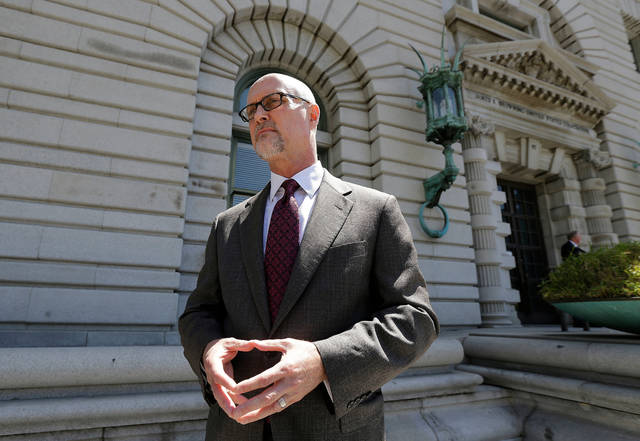SAN FRANCISCO — U.S. copyright law does not allow lawsuits that seek to give animals rights to photographs or other original work, limiting such claims to humans, a federal appeals court ruled Monday in a novel case over a series of well-known selfies taken by a monkey in Indonesia.
The decision by a unanimous, three-judge panel of the 9th U.S. Circuit Court of Appeals upheld a lower court ruling that also dismissed the lawsuit by the People for the Ethical Treatment of Animals against a photographer whose camera was used by a crested macaque to take the photos in 2011.
PETA’s 2015 suit against David Slater sought financial control of the photographs — including a now-famous selfie of the monkey’s toothy grin — for the benefit of the animal named Naruto.
Jeff Kerr, general counsel for PETA, said the group was reviewing the opinion and had not decided yet whether it would appeal.
“Naruto should be considered the author and copyright owner, and he shouldn’t be treated any differently from any other creator simply because he happens to not be human,” Kerr said.
The problem for Naruto, however, was that copyright law did not “expressly authorize animals to file copyright infringement suits,” Ninth Circuit Judge Carlos Bea said in the ruling. The judge said the law appeared to reserve that power only for humans.
The court ruled that Slater was entitled to attorneys’ fees in the case and sent it back to the district court to determine the amount.
Naruto snapped the photos with an unattended camera while Slater was on a trip to Sulawesi, Indonesia. Slater later argued that his company, Wildlife Personalities Ltd., owned worldwide commercial rights to the photos.
U.S. District Judge William Orrick said in a ruling in 2016 that “while Congress and the president can extend the protection of law to animals as well as humans, there is no indication that they did so in the Copyright Act.”
PETA appealed that ruling to the 9th Circuit.
Following oral arguments, Slater and PETA announced in September that they had reached a settlement under which Slater agreed to donate 25 percent of any future revenue from the images to charities dedicated to protecting crested macaques in Indonesia.
Lawyers then asked the 9th Circuit to dismiss the case and throw out Orrick’s decision.
But the appeals court refused, saying a decision in this “developing area of the law” would help guide lower courts and considerable public resources had been spent on the case.
Kerr said Monday the 9th Circuit ruling would not affect the settlement.


